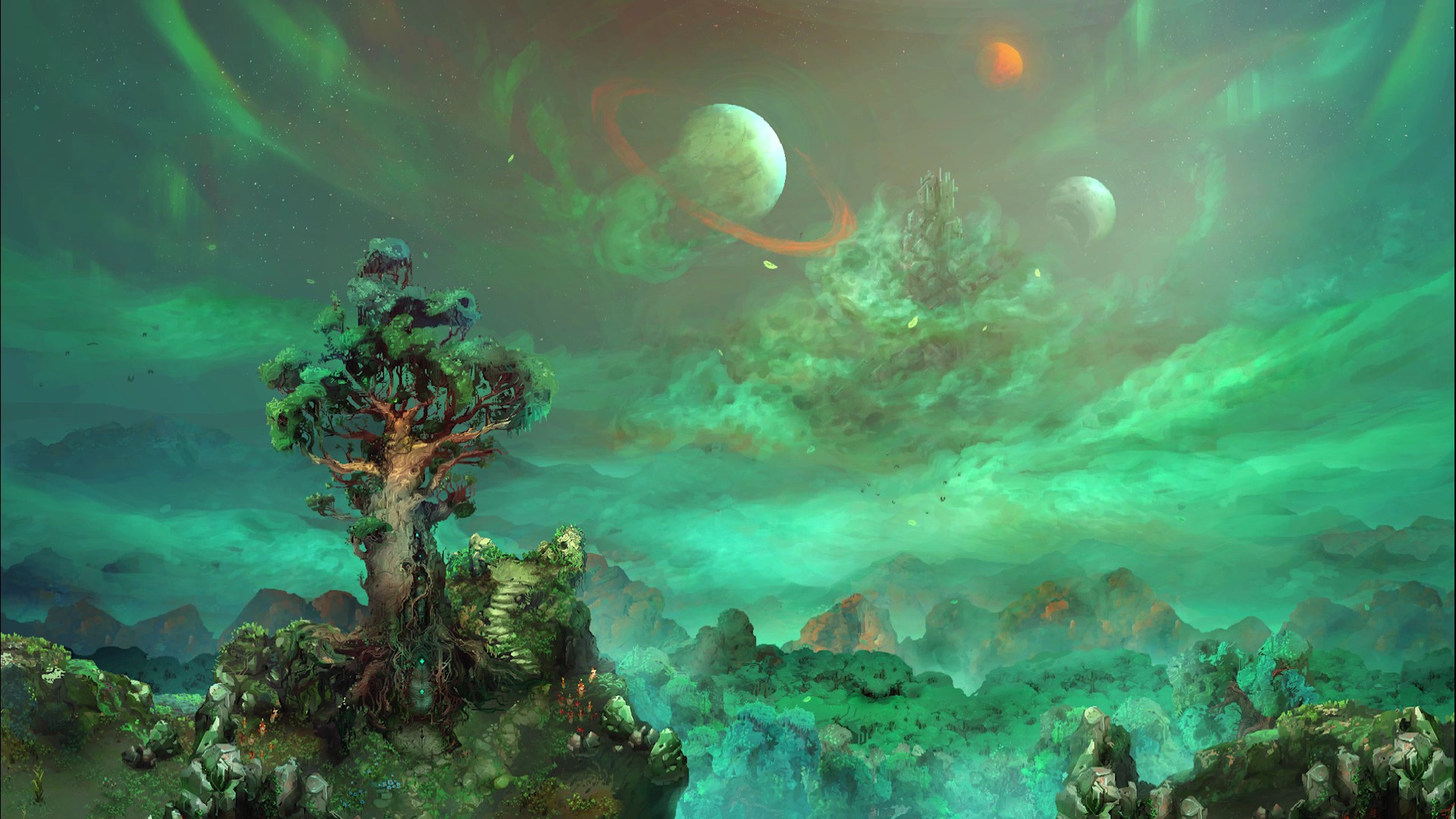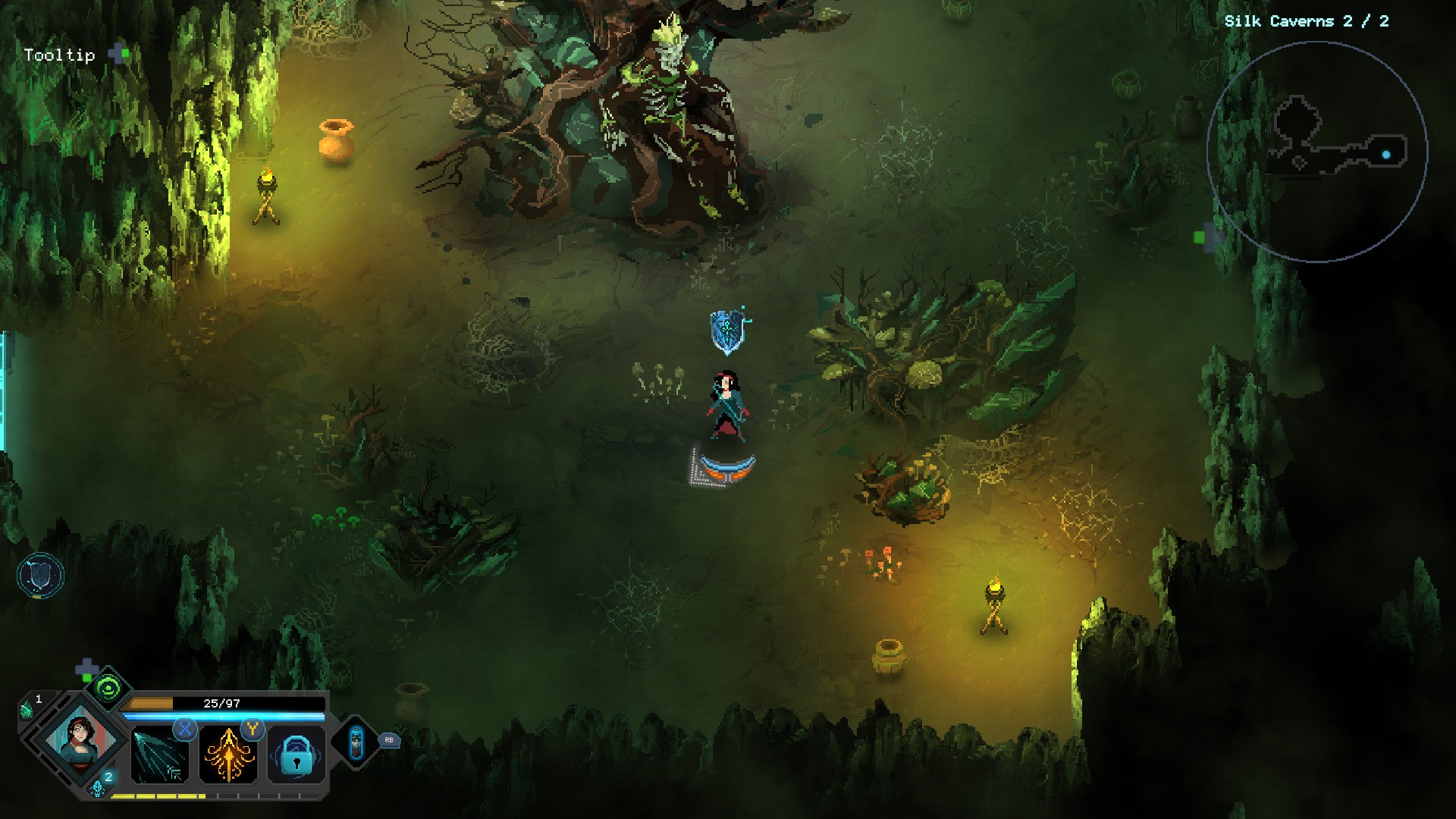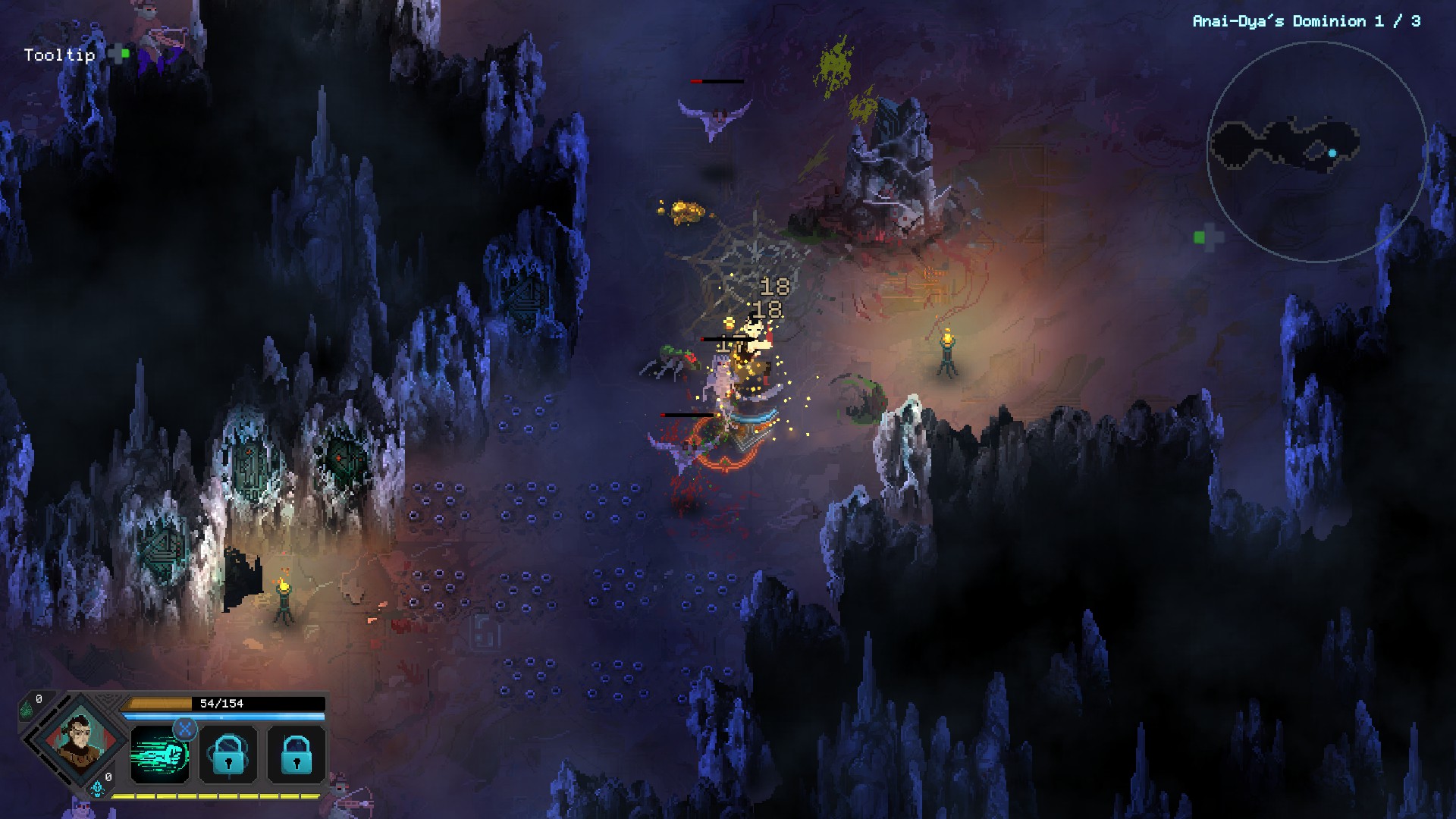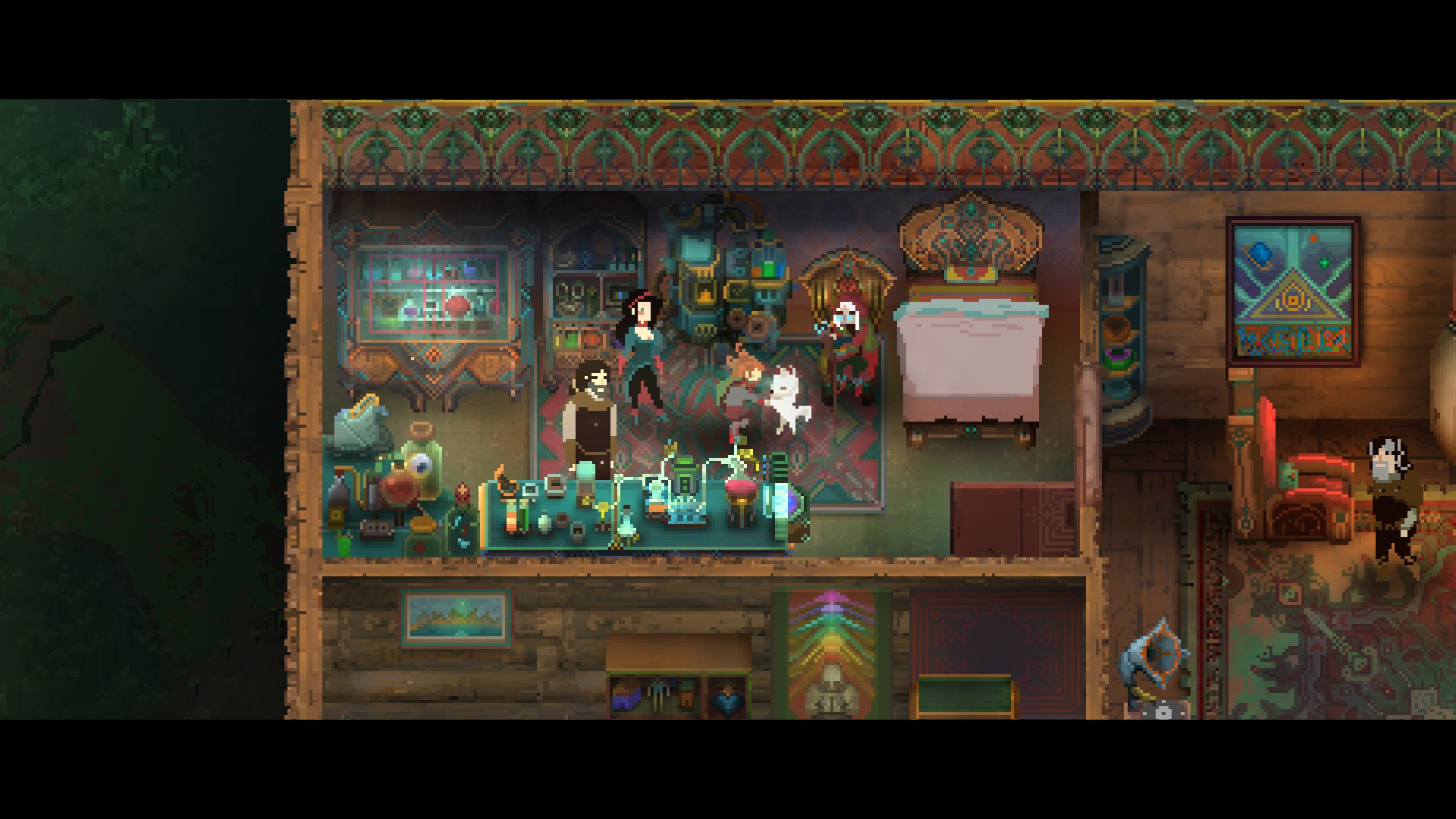Our Verdict
The Bergson's are charming but their quest is a bit too lifeless. A middling dungeon crawler elevated by its style.
PC Gamer's got your back
What is it? A story focused dungeon crawler
Expect to pay: $22 / £18.49
Developer: Dead Mage
Publisher: 11 bit Studios
Reviewed on: 64-Bit Windows 7, Nvidia GeForce GTX 970, Intel i7-4790K, 16GB RAM
Multiplayer: Yes
Link: Official site
How much charm can a game survive on? Children of Morta tested that question more than its punishing dungeon crawling tested my own skills. I think it just about makes it, but ultimately this roguelike doesn't flourish as well as it ought to.
An extremely (and knowingly) basic setup shows an ancient evil fall over the land. A family, the Bergsons, whose house is built over a magical shrine, are tasked by their grandmother to tackle the corruption—thanks, Nan. Their quest involves selecting members of the family to go on runs through the local dungeons to collect pieces of a goddess that can thwart the advancing evil. Children of Morta's unique selling point is its family, and putting a greater narrative focus into a genre populated by titles light on plot. It certainly has a lot of story to offer but I'm not sure it integrates it smoothly with the more traditional dungeon crawler staples.
The structure works like this: you pick a family member, go through the dungeon, fail or succeed to complete it, and return home with new resources to upgrade weapons and skills to make the next run that bit easier. Yet upon each return to the family house, new story emerges. Sometimes it advances the plot—introducing new family members to the fight—but as often it's a small slice of life moment. Linda playing her violin to calm herself between excursions or their mother feeding the nearby animals. The fact that progression occurs regardless of failure or success is welcome, softening the blow of a close defeat with a nice little titbit of story.

That said, wholesome as it often is (despite occasional tragic turns), the story did little to get me involved. I felt oddly detached from the events depicted; charmed by the gentle moments but uncaring of the overall plot's inevitable course. Some of that is in the delivery. None of the characters speak, instead everything is relayed via an old narrator. It's pleasant enough to listen to, but the narration is far too straightforward. It's just exposition of what you're already seeing on screen and thus ultimately redundant. And the story is so predictable—its big dramatic scenes telegraphed so far away—that it undermines our heroes rather than makes them seem tragic.
The family's struggle is also undermined by the game's mechanics, which make the consequences for death and failure extremely slight. Children of Morta follows a path that fantasy stories, especially in games, have walked many times. There's none of the wrinkles of, say, The Banner Saga or any of the evocative world building of Hyper Light Drifter.
The fact that you have little say over events hardly helps either. You're simply asked to watch everything unfold with only side quests giving you the option to flesh out more of the story. It's not a particularly captivating world either, even with its modest twist that—despite the simplistic and near fairy tale like setup—the fantastical elements are all presented as "technology indistinguishable from magic". The game doesn't go deeply enough into what that means, and so not being strictly fantasy is hardly a meaningful difference.

It sure is pretty though, with some of the most sumptuous and finely animated pixel art I've ever seen. The art direction leaves a lot to be desired—it's all evil inky monsters and glowing fantasy weapons, very much typical of games—but the realisation is second to none. The Bergson's home is the highlight, full of precious little touches that make it a joy to come back to time and time again.
Thank goodness it's nice to look at because the combat is otherwise extremely basic stuff that often involves a mere click of the mouse or push of the thumbstick on controllers. The game grows to be slightly more involved with special abilities acquired during dungeon runs, like the ability to summon a dragon to smash enemies or a little robot who follows you, stunning foes. Yet these are all simply another button press away. There are no combos nor is there anything much to learn.

The accessible and easy going nature of combat conceals just how unforgiving it can be. The tutorial especially sets up a much more approachable experience before the first lot of dungeons really turn the screws. They're randomly generated too, so there's no chance to revise. You just have to improve via the artificial means of levelling up. And there is so much grinding thanks to each new area sharply raising the difficulty further still.
Local co-op is an option that can help greatly but, on your own, it's slow going. This continues for most of the game, turning the dungeon crawling into a bit of a chore between you and the next little slice of story. Even with different family members offering different abilities, I soon grew tired of having to go back into the caves beneath the Bergson's home.
But I kept going, to get a little taste of those charming family moments. They weren't quite enough to sustain me to the end, but they were more than I've got out of most of Children of Morta's peers. While I never felt at home with the Bergson's, it sure was nice to visit.
The Bergson's are charming but their quest is a bit too lifeless. A middling dungeon crawler elevated by its style.


